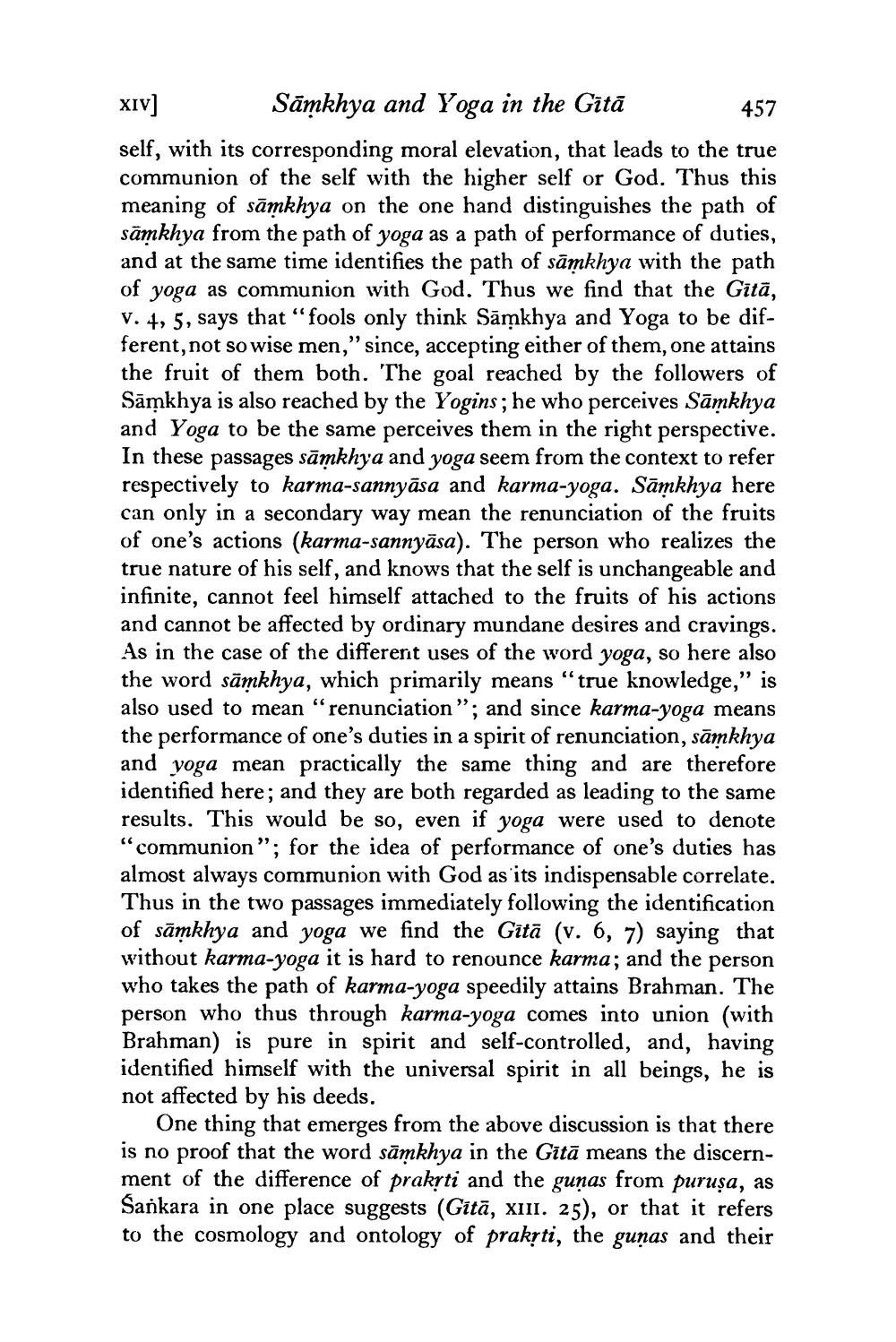________________
XIV]
Samkhya and Yoga in the Gita
457
self, with its corresponding moral elevation, that leads to the true communion of the self with the higher self or God. Thus this meaning of samkhya on the one hand distinguishes the path of samkhya from the path of yoga as a path of performance of duties, and at the same time identifies the path of sāmkhya with the path of yoga as communion with God. Thus we find that the Gitä, V. 4, 5, says that "fools only think Samkhya and Yoga to be different, not so wise men," since, accepting either of them, one attains the fruit of them both. The goal reached by the followers of Samkhya is also reached by the Yogins; he who perceives Sāmkhya and Yoga to be the same perceives them in the right perspective. In these passages sāmkhya and yoga seem from the context to refer respectively to karma-sannyāsa and karma-yoga. Sāmkhya here can only in a secondary way mean the renunciation of the fruits of one's actions (karma-sannyāsa). The person who realizes the true nature of his self, and knows that the self is unchangeable and infinite, cannot feel himself attached to the fruits of his actions and cannot be affected by ordinary mundane desires and cravings. As in the case of the different uses of the word yoga, so here also the word sāmkhya, which primarily means "true knowledge," is also used to mean "renunciation"; and since karma-yoga means the performance of one's duties in a spirit of renunciation, sāmkhya and yoga mean practically the same thing and are therefore identified here; and they are both regarded as leading to the same results. This would be so, even if yoga were used to denote "communion"; for the idea of performance of one's duties has almost always communion with God as its indispensable correlate. Thus in the two passages immediately following the identification of samkhya and yoga we find the Gitā (v. 6, 7) saying that without karma-yoga it is hard to renounce karma; and the person who takes the path of karma-yoga speedily attains Brahman. The person who thus through karma-yoga comes into union (with Brahman) is pure in spirit and self-controlled, and, having identified himself with the universal spirit in all beings, he is not affected by his deeds.
One thing that emerges from the above discussion is that there is no proof that the word sāmkhya in the Gita means the discernment of the difference of prakṛti and the gunas from purușa, as Sankara in one place suggests (Gitā, XIII. 25), or that it refers to the cosmology and ontology of prakṛti, the gunas and their




